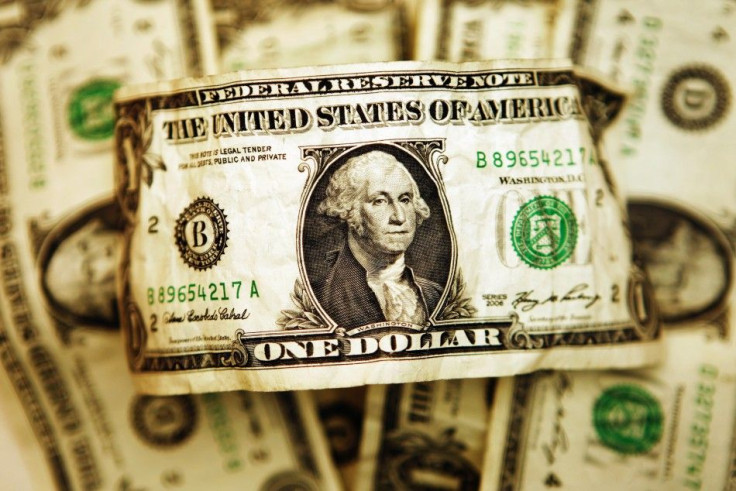Volatility Stymies Even Smart Money

Volatility in equity markets is burning smart-money players, and even experienced traders are finding it hard to keep up.
Some fund managers have been dipping back into stocks to pick up bargains but could end up in a value trap if equities fall into a bear market and the economy falls into recession.
Others are taking a wait-and-see approach after getting blindsided by market swings not seen at least since the financial crisis -- and by some measures well before that.
Most are unlikely to dive back in given fears over Europe's debt crisis and fears of a second recession in the United States that sent equity markets sliding over the summer.
The $2 trillion hedge fund industry -- often seen as the smartest of the smart -- will ultimately play an important role in whether stocks can rise over the long-term. Uncertainty there means more of the same churning action and precipitous falls without that wall of money to act as a back stop.
Gross exposures have come down industrywide and large bets in either direction have also decreased because of the volatility, said Robert Francello, head of equity trading a Apex Capital, a hedge fund in San Francisco.
Francello said that as well, short-selling bans on banks in parts of Europe were hurting liquidity no question.
A recent survey of hedge fund managers found that bearish sentiment rocketed in August to its highest level in a year.
The survey by BarclayHedge and TrimTabs Investment Research showed bearish sentiment rose to 42 percent in August from 27 percent in July.
It also revealed very bearish views on the economy. About 56 percent think the U.S. economy is already in recession or will slip into recession soon, and just 3 percent say economic growth is set to accelerate.
For Sam Ginzburg, head of capital markets at First New York Securities, where he trades his firm's capital, the binary situation is presenting investors with something akin to a zero sum game.
There's a lot of money to be made or lost right now, he said. If you have a view, meaning this isn't 2008 all over again and you think things are going to settle out and you start buying some of the mega-cap, big-cap stocks that will do well as the economy does better -- or vice versa -- the amount of money you can make is astounding, he said.
But for Ginzburg that time is not now. He said his fund was still light compared with the amount of money he could invest.
Over the summer the S&P 500 index, a broad measure of U.S. large-cap stocks, crashed 17 percent in just 14 trading days between July 21 and August 10. For investors, that was one of the most trying periods on record, and they are just not ready to start taking on big bets.
One market veteran who runs a proprietary trading firm in New York told his traders they could go to zero (and) get the hell out of here in August as the firm's inventories shrunk to just 15-20 percent of what they could be.
It's just like betting on horses, he said. That two-week period was the hardest I have ever had to deal with.
Joseph Mazzella, a senior trader at Knight Capital, agreed. Knight has one of the biggest retail books in the business and deals with a host of institutional clients.
This is the most difficult trading environment I've ever seen, Mazzella said. Performance has struggled, it's a really difficult year.
Many hedge funds cut bullish bets that they put on in the first half of the year, and comparisons with the financial meltdown of 2008-2009 abound.
There is a lot of pain out there, said Mazzella. These guys have just been whipsawed like crazy.
Earlier in the year many hedge funds built up bullish positions in growth-oriented stocks -- bets that are likely to have been cut over the summer.
Data compiled by Credit Suisse from filings with regulators show that up until the end of June hedge funds were overweight stocks that are expected to do well in a growth environment.
But Pankaj Patel, the Credit Suisse analyst who compiled the data, said given what he is hearing from hedge fund clients, he expects many of them have become much more defensive.
They are not telling us that they are taking a defensive move but talking to them you could sense that, he said. Before they were not asking about the economy.
Options activity suggests uncertainty is running high.
Todd Salamone, an analyst at Schaeffer's Investment Research, said an increase in early September in downside protection in the form of put option buying on major exchange-traded funds based on equity indexes suggests some funds are hedging renewed equity exposure.
However, a lack of call buying on CBOE Volatility index options, which are another hedging vehicle for fund managers, sends the opposite signal.
There is not a consensus there, and that is why we are having this choppiness, said Salomone.
In terms of institutional flows Knight's Mazzella has been seeing a flight to defensive bets.
The only thing we see is a very defensive shift: utilities, healthcare, consumer staples; everything else is for sale, he said. People are playing technology a little bit but everybody's leery so it's very much defensive positioning.
We went from no protection being bought in the market to massive protection, and massive defensive positioning, he said. So if you want to play the contrarian angle we probably went too far again.
© Copyright Thomson Reuters 2024. All rights reserved.





















